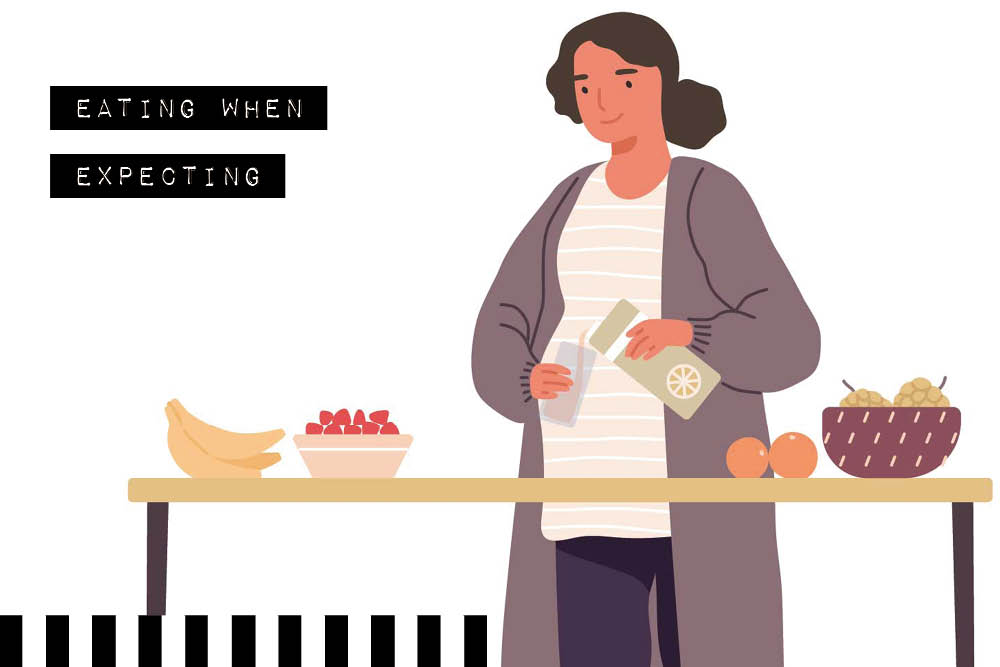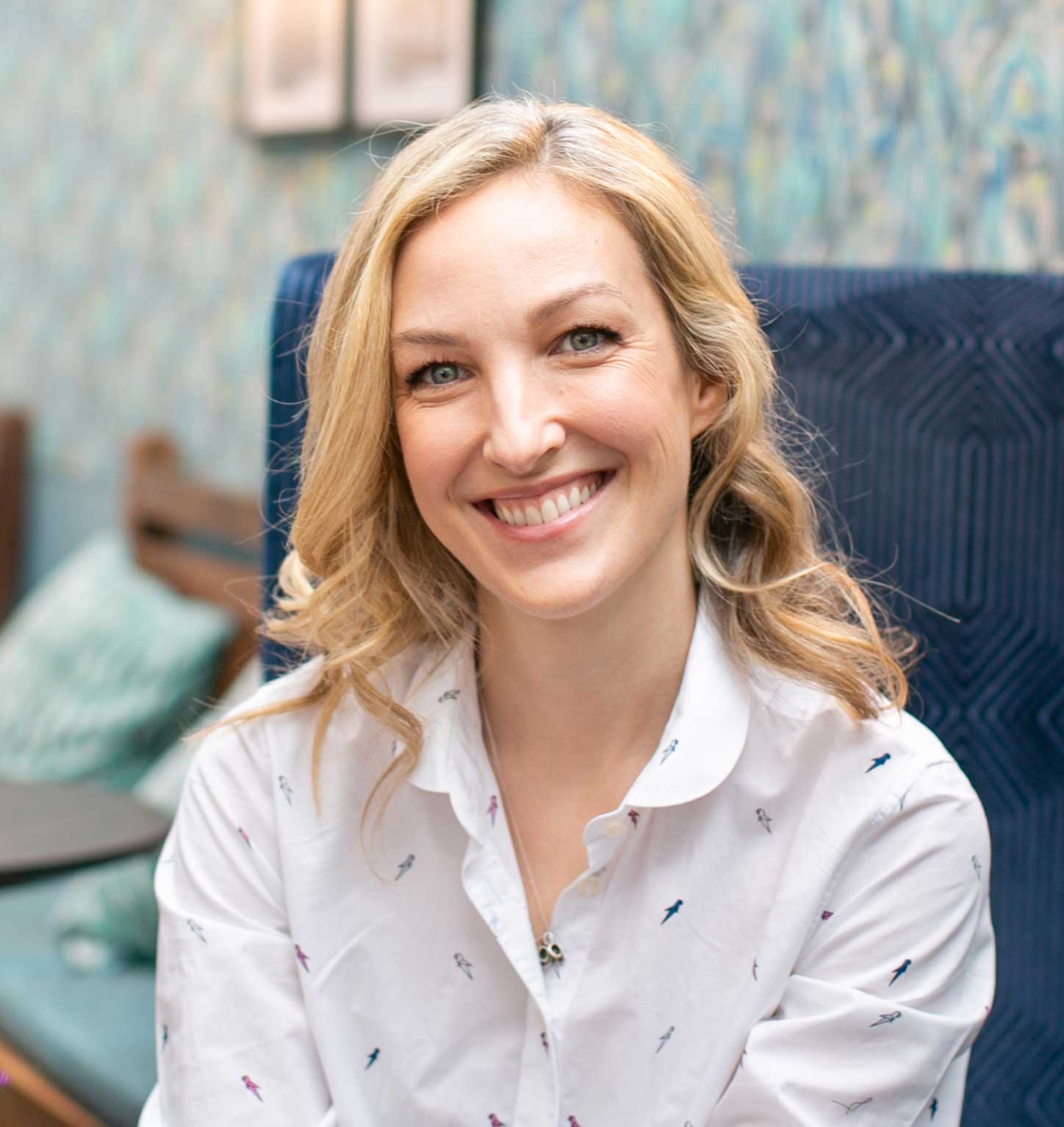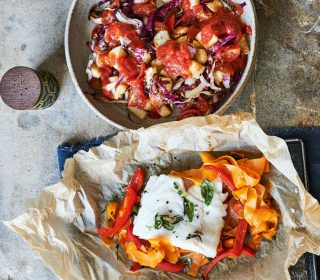What foods should you be eating during pregnancy?

As soon as we get that positive pregnancy test, our thoughts turn to food as we are bombarded with information on what foods are no longer safe during pregnancy. The NHS details a long list of foods to avoid for safety reasons, and everyone from our mother-in-law to strangers in the street will have an opinion on whether we really should be eating that mayonnaise sandwich or not, now that we have another small person to consider.
Aside from what not to eat, it’s also really important to consider those foods and nutrients that we really don’t want to be missing out on for a healthy pregnancy and baby. Pregnancy is a time to eat well. What you eat, and don’t eat, during pregnancy and even before conception, can have a profound effect on your baby’s health relating to genetic predisposition, and health outlook throughout life. It’s important to avoid any nutritional deficiencies, which may impact the pregnancy, baby or mum’s health negatively.
Contrary to popular belief, our energy needs don’t actually change much at all until the last three months of pregnancy, when energy needs increase by about 200 calories per day. This is roughly what you would get from one apple and a small handful of pumpkin seeds. Rather than eating for two, we should be eating twice as well, and focus on the quality of the food on our plate.
What nutrients must be incorporated in our diets when pregnant?
When it comes to specific nutrient recommendations, it would make sense that our needs should increase in order to build a whole new person. However, the fact is that the female body actually changes and adapts in order to increase absorption of all of the nutrients needed to build a healthy baby. Therefore, it’s less important to focus on specific nutrients, but more important to ensure that the diet is providing good quality nutrients, in order to make available the extra nourishment for the body to absorb.
Wholegrain carbohydrates
Opting for wholegrain carbohydrates such as steel cut oats, brown rice, buckwheat, rye, millet and quinoa rather than refined white carbohydrates such as white flour and baked goods, will maximise your intake of the essential nutrients needed for pregnancy, such as B vitamins, zinc, magnesium and calcium. The fibre from these complex carbohydrates also help balance blood sugar levels and prevent constipation.
Protein
Protein provides the building blocks for the body and is necessary for both mum and baby’s requirement for the new tissue formation including creating the placenta and increasing the blood volume. If the mother does not eat enough protein during pregnancy, the maternal stored resources are depleted in favour of the baby’s growth. Good protein sources include fish, poultry, eggs, beans, lentils, nuts, seeds and red meat in moderation and avoid processed meats.
Essential Fatty Acids
Fats should not be feared, especially during pregnancy as they are crucial for the proper development of the baby, especially the omega 3 type of essential fatty acids. Numerous studies have shown a benefit from the effect of EPA and DHA (omega 3 fats) on brain formation, neurological and early visual development of the baby. There are also correlations between higher intakes of omega 3 fats and a reduced risk of allergies in children, lower rates of pre-term labour, and lowered risk of pre-eclampsia. Unfortunately, our modern western diet is very deficient in omega 3 fats, and the best way to ensure that you are getting enough before and during pregnancy, as well as during breast feeding, is by taking a good quality supplement.
Vegetables
Following a vegan or vegetarian diet during pregnancy is ideally done under the close supervision of a qualified nutritionist, since there are many potential deficiencies, which need to be avoided. A vegan diet especially runs the danger of being deficient in iodine, iron, zinc, specific amino acids, calcium, B12, choline and omega 3 fatty acids.
However, vegetables should form the basis of your diet when you are pregnant. Each different colour vegetable contains a unique set of beneficial nutrients and antioxidants so we need to aim to eat every colour, every day. By eating a rainbow of vegetables – red, yellow, red, purple, green and white – you ensure that you are getting all of the nutrients needed for baby’s health. I ask my clients to aim high, about 8-9 servings of vegetables and 1-2 servings of fruit each day is a good rule of thumb.
We also now know that babies form a taste for foods in the womb, so if you want your toddler to eat their broccoli, now is the time to eat them!
Eat Organic
Buy organic fruit, vegetables, meat and eggs wherever possible. Organic food contains lower levels of pesticides, herbicides and other toxic substances, and is also likely to be more nutrient dense because it is grown in crop-rotated soil which is less likely to become depleted. If you find organic food in your areas is too expensive, look up the ‘dirty dozen’ and ‘clean fifteen’ – the fruit and vegetables with the most vs least pesticide residue.
Folate
Folate is important during preconception, as most people are aware of and should be taken as a supplement at least throughout the first trimester. However, folate works in synergy with the other B vitamins, some of which are equally as important for cell replication. It’s best to take Folate as part of a B vitamin complex or multivitamin alongside the other B vitamins, not on its own as this can cause an imbalance of the other B vitamins. Good sources of Folate are dark green leafy vegetables such as spinach, kale, broccoli, legumes, nuts and avocados.
Zinc
This mineral is vital for both male and female fertility, it’s also needed for healing and repair post birth. Low levels of zinc have also been associated with post-natal depression, so make sure your pre-natal and pregnancy vitamin contains zinc in order to prevent a deficiency. Pumpkin seeds, meat, nuts and legumes such as chickpeas and lentils are good sources of zinc.
Calcium
During the third trimester the baby’s bones are developed and if there is a lack of calcium in the diet, the nutrients are drawn from the mother’s stores instead, ie her bones. Good sources of calcium are tahini, sardines (with bones), nori seaweed, salmon, almonds, figs, yoghurt, spinach and watercress.
Vitamin D
Vitamin D deficiency is extremely common in the UK, however Vitamin D is essential for the proper functioning of the immune system and also for bone formation. Those women with adequate Vitamin D intakes during pregnancy have been shown to have babies with better infant growth and lower levels of dental enamel dysplasia as infants. Some populations are at higher risk of vitamin D deficiency, in particular those living in the northern hemisphere and those with darker skin tones. Good sources of vitamin D is exposure to sunlight during the summer months, eggs and oily fish.
Water
Not strictly a food, but water is too important not to mention. I recommend you drink plenty of water, aim for about 2 litres each day to avoid constipation and dehydration. A word of warning re herbal teas, they can have a very powerful effect so make sure your chosen brew is safe during pregnancy.
What foods should be avoided during pregnancy?
There are comprehensive guidelines available via the NHS website for the most up-to-date advice as they have comprehensive lists of unsafe foods to eat, however as a fertility nutritionist concerned not just with the avoidance of severe illness but in order to aim for optimal health with my clients, I go one step further with some added advice.
Alcohol
While opinions differ on how much alcohol is safe during pregnancy, zero alcohol is always the safest level. Your baby’s organs are in development throughout pregnancy and are therefore vulnerable to damage, with the brain in particular at risk. Alcohol is a toxin to the body and is a substance that a growing baby just does not need.
Caffeine
Tea, coffee and other caffeinated drinks such as Coca-Cola should be reduced, or better still completely eliminated. Caffeine crosses the placenta and enters your baby’s bloodstream, having the same stimulating effect in the baby as in adults. As your baby is not fully developed, these may have unintended stimulatory effects. Decaffeinated products can unfortunately be chemically processed so I recommend that those are avoided, too.
Wild Game
Wild game should be avoided as it may contain high levels of lead from the pellets used to shoot the animal. Venison and other game from supermarket is usually farmed and may be safer but it’s best to ask the retailer.
Oily fish from polluted seas
As mentioned above, our western diet is severely deficient in omega 3 fats, the best source being is oily fish. However, some fish contains high levels of mercury, which can be harmful to the baby so those should be avoided. Do not eat shark, swordfish or marlin if you’re pregnant or plan to try for a baby. Tuna should be limited; official advice is to have no more than two tuna steaks or four medium-sized cans of tuna a week but I would cut this out altogether in favour of other types of fish such as white fish and sardines. You should also avoid having more than two portions of oily fish a week, such as salmon, trout, mackerel or herring. This is due to the pollutants like dioxins and PCB’s they may contain. In my opinion the better options are wild Alaskan salmon, or sardines, which are small so less likely to be as heavily contaminated as the larger fish. White fish is fine to eat but does not contain enough omega 3 so don’t rely on it for your essential fatty acid intake.
Exposure to chemicals
A final word on chemicals in our environment, plastics and those chemicals found in our cleaning products and skincare can be harmful to a growing foetus. It’s best to avoid wrapping your food in plastics or keeping them in plastic containers or drinking out of plastic water bottles.
The food we eat during pregnancy is so important to both the mother’s energy and health and the health of the baby, therefore maintaining a healthy diet throughout pregnancy is so important. This guide should give you a good start towards a healthy, well-nourished pregnancy and beyond.

Sandra also runs a 12-month fertility mentoring program, to support other practitioners to become safe and effective practitioners in this growing field. She has a busy online clinic as well as an online course (£100 discount with code LOCKDOWN) and podcast, focussing on helping couples create healthy, happy families. Follow Sandra on Instagram @sandragreenbank_fertility








